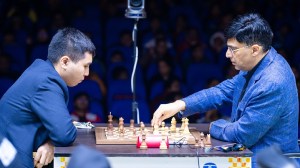The tragedy that was
Twenty-six years after the Union Carbide tragedy in which over 15,000 died,Bhopal has moved on,reports MILIND GHATWAI....
If you drive around Bhopal today,parts of the lake city look better than most state capitals. While there are no big malls and only a few skyscrapers,the imposing government buildings,the new flatssome priced as high as Rs 75 lakh,a sum considered obscene even today by some hereand the good roads bear no signs of the tragedy 26 years ago that killed over 15,000. In the old city,though,the physical symbols of the industrial disasterhospitals,clinics,rehabilitation centres and offices of tribunals for settlement of claimsremain. There are more hospitals here than anywhere else,but its not enough for everyone, says Dr Mali,a doctor attached to the Jawaharlal Nehru Hospital,located near the site.
The after-effects of the deadly MIC gas leak on that wintry night of December 2 have left tens of thousands ill and suffering,but they are slowly coming to terms with it. Last week,as the verdict on the Bhopal gas tragedy convicting former Union Carbide India Chairman Keshub Mahindra and seven others and awarding them a mere two years imprisonment,came under attack from across India,the city itself seemed to harbour none of the outrage.
While a few committed activists carried out protests in the city,for a majority of the affected population,the idea of justice against Union Carbide and its officials is compensation. And understandably so. Who will give us money now? asks 80-year-old Kamlabai,who lives in a shanty on the border of the now-defunct and rusting Union Carbide plant.
While most of those affected by the tragedy never returned to the vicinity of the plant,there is new encroachment on the premises. The boundary wall separating Atal Ayub Nagar from the plant was pulled down by slumdwellers last year when rainwater threatened to engulf their huts. For months they had free access to the scrap from the plant,over which armed guards kept a watch for years after the catastrophe. Now that the wall is being re-laid,they are chipping away at the standing portions and using the debris to strengthen their huts. Children play cricket on the premises of the plant and the elderly use the new space to take a stroll along the boundary.
In Vidhwa colony,built by the housing board for women who had lost their husbands to the gas leak,Seema Panthi,whose father-in-law died in the tragedy,talks about a meeting,a codeword that entails attending rallies and gatherings in the hope of getting more compensation. Most of the original claimants here have sold their houses and the eligibility criterion for allotment has been changed to include those who lost their parents.
Talk about bringing Warren Anderson and the others to justice and youre likely to elicit an incredulous look. Kai ko phasi dena,paisa kaun dega? Why hang someone? Who will give us money then? asks Thansingh Kunjilal. Voices like 47-year-old Ashok Pendharkars are in a minority. A painter,he says only the educated are bothered about punishing the guilty.
On anniversaries of the tragedy,people no longer close their shops as a mark of respect to those who died. For many years,the anniversary commemoration has been a limited affair,with a handful of activists,supporters and the media in tow. Divya Haria,who manages the Bhopal Rehabilitation Centre in Risaldar Colony near the factory,says none of the 50 gas victims who are now employees bothers to attend the annual ritual. The unit used to train victims in skills like sewing but now exports leather goods on order.
The idea of justice is different for different people. It may mean clean drinking water for those living in affected areas or better health care for those denied medical attention, says Rachna Dhingra of the Bhopal Group for Information and Action. Abdul Jabbar of Bhopal Gas Peedith Mahila Udyog Sangathan says a campaign is necessary to ensure such tragedies dont happen and to prevent corporates from thinking that they can get away easily.
A government employee recalls how Bhopal has changed from a small town in 1984 to a city where property prices are shooting through the roof like in any other state capital. Many assets were created from the compensation given,but the problem is one of maintenance, he says,adding,Doctors and advocates milked the tragedy for years. And the promise of compensation led people into aspiring for a better lifestyle.
Retired IAS officer MN Buch,one of the early planners of Bhopal city,says its time to move on. He says the government should take on responsibility and distribute compensationRs 10 lakh for the dead and between Rs 1 lakh and Rs 5 lakh for the affected,depending on the injuries. He says the chief judicial magistrate gave the maximum possible punishment and he should not be held responsible for the fact that the offenders were booked under the wrong sections. Lets get on with it, he says,adding,World wars were fought,should the adversary nations continue breast-beating even now?
- 01
- 02
- 03
- 04
- 05































